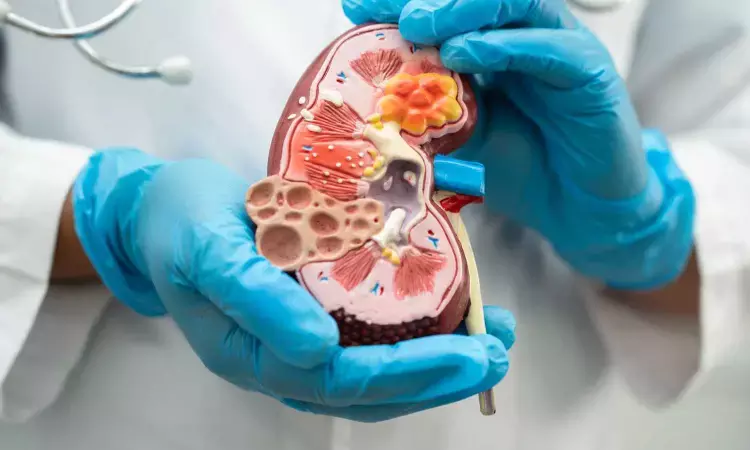- Home
- Medical news & Guidelines
- Anesthesiology
- Cardiology and CTVS
- Critical Care
- Dentistry
- Dermatology
- Diabetes and Endocrinology
- ENT
- Gastroenterology
- Medicine
- Nephrology
- Neurology
- Obstretics-Gynaecology
- Oncology
- Ophthalmology
- Orthopaedics
- Pediatrics-Neonatology
- Psychiatry
- Pulmonology
- Radiology
- Surgery
- Urology
- Laboratory Medicine
- Diet
- Nursing
- Paramedical
- Physiotherapy
- Health news
- Fact Check
- Bone Health Fact Check
- Brain Health Fact Check
- Cancer Related Fact Check
- Child Care Fact Check
- Dental and oral health fact check
- Diabetes and metabolic health fact check
- Diet and Nutrition Fact Check
- Eye and ENT Care Fact Check
- Fitness fact check
- Gut health fact check
- Heart health fact check
- Kidney health fact check
- Medical education fact check
- Men's health fact check
- Respiratory fact check
- Skin and hair care fact check
- Vaccine and Immunization fact check
- Women's health fact check
- AYUSH
- State News
- Andaman and Nicobar Islands
- Andhra Pradesh
- Arunachal Pradesh
- Assam
- Bihar
- Chandigarh
- Chattisgarh
- Dadra and Nagar Haveli
- Daman and Diu
- Delhi
- Goa
- Gujarat
- Haryana
- Himachal Pradesh
- Jammu & Kashmir
- Jharkhand
- Karnataka
- Kerala
- Ladakh
- Lakshadweep
- Madhya Pradesh
- Maharashtra
- Manipur
- Meghalaya
- Mizoram
- Nagaland
- Odisha
- Puducherry
- Punjab
- Rajasthan
- Sikkim
- Tamil Nadu
- Telangana
- Tripura
- Uttar Pradesh
- Uttrakhand
- West Bengal
- Medical Education
- Industry
High Blood Sugar Levels Increase Readmission Risk among Kidney Transplant patients

Illegal Kidney Transplant
Inpatient hyperglycemia has long been recognized as a risk factor for hospital readmission in various patient groups. A recent study published in Clinical Transplantation found the importance of managing glucose levels during the post-transplant period among kidney transplant recipients.
Between September 2015 and December 2018, researchers examined data from 1,036 individuals who had undergone their first kidney transplantation. This data allowed the researchers to identify cases of diabetes mellitus and gather information about blood sugar levels and insulin therapy. The study employed both univariate logistic regression analysis and the advanced XGBoost algorithm to predict 30-day hospital readmission.
Out of the 1,036 kidney transplant recipients, 224 (22%) experienced hospital readmission within 30 days. The machine learning model proved effective in predicting such readmissions, with an average area under the receiver operator curve (AUC) of 78%, signifying good predictive power.
The research identified significant differences in the incidence of pre-transplant diabetes, inpatient hyperglycemia, inpatient hypoglycemia, and the range of blood glucose values between those who experienced higher rates of 30-day readmission.
The XGBoost model further pinpointed several factors contributing to the risk of 30-day readmission. These included the length of the index admission, occurrences of hyperglycemia and hypoglycemia, body mass index (BMI) of both recipient and donor, the presence of delayed graft function, and the patient's racial background.
The findings underline the critical role of glucose management during the post-kidney transplant phase. Suboptimal glucose control was associated with a significantly increased risk of 30-day hospital readmission. Notably, this controllable factor could be addressed to mitigate the risk, potentially enhancing the overall success of kidney transplantation.
This research not only highlights the significance of glucose management but also draws attention to the varying approaches taken by healthcare providers in managing blood glucose levels. Improved standardization and consistent care protocols could be instrumental in reducing the rate of readmissions for kidney transplant recipients.
Reference:
Orfanoudaki, A., Cook, C. B., Saghafian, S., Castro, J., Kosiorek, H. E., & Chakkera, H. A. (2023). Diabetes mellitus and blood glucose variability increases the 30‐day readmission rate after kidney transplantation. In Clinical Transplantation. Wiley. https://doi.org/10.1111/ctr.15177
Neuroscience Masters graduate
Jacinthlyn Sylvia, a Neuroscience Master's graduate from Chennai has worked extensively in deciphering the neurobiology of cognition and motor control in aging. She also has spread-out exposure to Neurosurgery from her Bachelor’s. She is currently involved in active Neuro-Oncology research. She is an upcoming neuroscientist with a fiery passion for writing. Her news cover at Medical Dialogues feature recent discoveries and updates from the healthcare and biomedical research fields. She can be reached at editorial@medicaldialogues.in
Dr Kamal Kant Kohli-MBBS, DTCD- a chest specialist with more than 30 years of practice and a flair for writing clinical articles, Dr Kamal Kant Kohli joined Medical Dialogues as a Chief Editor of Medical News. Besides writing articles, as an editor, he proofreads and verifies all the medical content published on Medical Dialogues including those coming from journals, studies,medical conferences,guidelines etc. Email: drkohli@medicaldialogues.in. Contact no. 011-43720751


